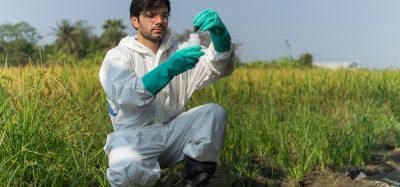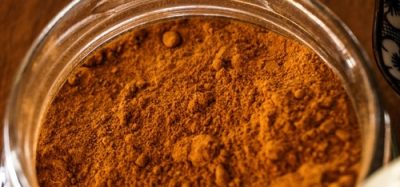Bovaer: a lot of hot air or a sinister plot?
Posted: 4 December 2024 | Professor Chris Elliott | 5 comments
This week, Professor Chris Elliott wades in on the widespread unrest surrounding the dairy feed additive trial…


Arla, the UK’s biggest dairy company, recently announced that it is undertaking a trial of a commercial feed additive that can reduce methane emissions by around 30 percent in cows. I hadn’t anticipated this would trigger as much interest or indeed anger as it has. To my mind, the major concerns appear to range from the totally bogus to entirely understandable; but more about these later in the article.
Rethinking livestock’s role in emissions
First of all, why is the trial even taking place? Cattle have been, in my opinion, often demonised for being major contributors to global greenhouse gas (GHG) emissions. Some estimates put this at over 30 percent while others are closer to 10 percent. This prompts the question: what constitutes accurate measurements of GHG sources? Some would say, myself included, the higher numbers are very misleading as they only seem to take account of gross emissions and not net emissions. Some also fail to fully account for the carbon cycle, ie, how methane naturally breaks down to become stored as carbon within soils once again. But whatever figure truly reflects the impact of livestock production on GHG levels, it is an important contributor, thus achieving Net Zero in livestock farming is extremely important. And believe me, farmers know and understand this and are working hard to achieve it on many fronts. Improving animal genetics, employing regenerative agriculture practices and making dietary modifications are three such examples; and it is the third of these that has kicked up a bit of a storm, the Arla trial on Bovaer®.
But what is Bovaer?
It is a commercial feed additive available in over 50 countries around the world that reduces the methane production of cattle by inhibiting an enzyme in the rumen of cows. So why all the fuss about the trial? There’s no doubt social media has played an important role in the amount of information and disinformation being spread about the study. Some include the claim that the product is actually added to milk, which is utter nonsense. Other claims suggest the product is dangerous to the animals and consumers of meat and milk. These are equally spurious. There is also upset about a manmade chemical being added to the very natural system of milk production, ie, cows gazing in a field should not be interfered with. But in all honesty none of these stack up to scrutiny either. There are currently around 1,300 licenced feed additives in the EU with wide-ranging modes of action, each of which has been subjected to rigorous checks in terms of its safety. Some of these are natural based products but many are based on synthesised chemicals. I even saw some threads which stated Bill Gates was behind the ‘Bovaer plot’. As far as I can ascertain, he has no remote association with the product and in fact has financially supported a rival product.
Questioning the credibility of EAT-Lancet report
Often in the face of such controversies my fallback position is to ‘trust the science’. But on the topic of our food system and its sustainability, unfortunately this doesn’t hold up particularly well. I reference use of the EAT–Lancet Commission on healthy diets from sustainable food systems publication https://www.thelancet.com/journals/lancet/article/PIIS0140-6736(18)31788-4/abstract as an example. This piece of work in scientific literature, now cited over 10,000 times, is used by many countries to form important food policy decisions; yet it is deeply flawed. In my opinion, as well as other scientists and food system commentators, it is wrong on many fronts. I actually believe it contains more hot air than that produced by a sizeable herd of Friesian cows and is somewhat a product of a ‘gentleman’s club’ that exists in science where rules for one can be bent or forgotten for others. My opinion on Eat Lancet remains that it should be retracted from the scientific literature.
Navigating trust in science and Bovaer’s role in the methane solution
The ‘Bovaer bother’ as I am now calling it, appears to be a manifestation of quite widespread distrust in some parts of society of scientists and large industry and how social media can impact on important debates. It is deeply worrying that a few influencers are more trusted than science opinions but this is where we now find ourselves. So, a final question: is Bovaer part of the methane solution? My view, as a scientist, is that science and technology will provide a wide range of solutions to the GHG problems and many other food system dilemmas we face. I have confidence that the trial being conducted in the UK will determine if this product might have some role to play in the UK. I am also very confident that there will be many more innovations that will contribute – and may be even more effective – and will hopefully face less consumer resistance.










I agree with you comments. A lot of hot air is being made of this additive.
As a dairy farmer, my main concern from the beginning is that by turning to these kinds of supplements, then are we at risk of playing into the hands of those people who demonise the cow in the first place?
If the very way in which methane as a GHG is measured correctly in the first place and “net” figures are used as opposed to “gross”, as well as the recognition that it’s part t of the natural carbon cycle, then do we really need it?
Many thanks, all very good points!
Rubbishing science and promoting quack medicine is now an industry, earning £Ms for disinformation providers. It’s only going to get worse.
Next up: demands for witchcraft and shamen to be on the NHS.
I think, if you strip out the extremes and downright lies, as you have sought to do, the issue highlights the huge distrust of big business in general and of ‘big food’ in particular. It also seems to imply a sever degree of distain on the part of Arla, in the manner in which they approached the introduction of Bovaer to its consumers.
all very good points Jan.